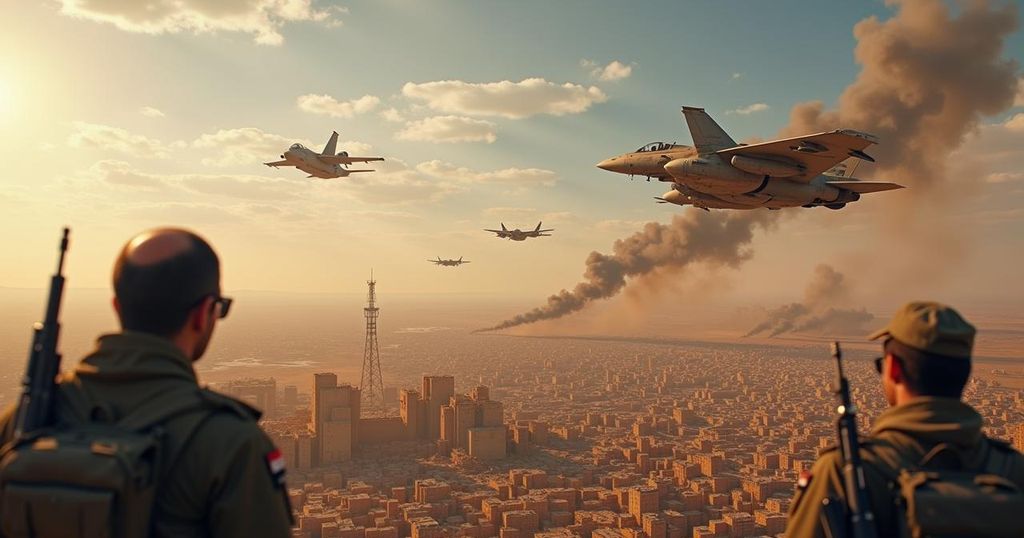Iraq Voices Opposition to Regional War Expansion Towards Iran
Iraqi Foreign Minister Fuad Hussein condemned any potential expansion of the conflict to Iran, opposing Israel’s potential use of Iraqi airspace. Meanwhile, Iranian Foreign Minister Abbas Araghchi highlighted Tehran’s readiness for conflict but reiterated a commitment to peace, particularly concerning Gaza and Lebanon. The situation raises concerns about regional stability amid rising tensions.
On Sunday, Iraqi Foreign Minister Fuad Hussein articulated Baghdad’s strong opposition to any escalation of conflict that could extend towards Iran, particularly in light of Israel’s anticipated reprisals following a recent missile strike from the Islamic Republic. During a joint press briefing with his Iranian counterpart in the Iraqi capital, Mr. Hussein stated, “The continuation of the war and its expansion towards the Islamic Republic of Iran and [Israel’s] exploitation of Iraqi airspace as a corridor is completely unacceptable and rejected.” In response to the situation, Iran’s Foreign Minister Abbas Araghchi expressed his nation’s readiness for a potential conflict while simultaneously emphasizing Tehran’s desire for peace. He affirmed, “We are fully prepared for a war situation. We are not afraid of war, but we do not want war, we want peace and we will work for a just peace in Gaza and Lebanon.” This statement reflects a dual stance of preparedness for conflict while advocating for diplomatic resolutions. The remarks come at a tense time in the region, introducing concerns over the implications of ongoing hostilities and the potential for a broader military confrontation involving multiple nations.
The article highlights the precarious geopolitical situation in the Middle East, particularly amid rising hostilities between Israel and Iran. The context of the statements made by Iraqi and Iranian leaders reflect the delicate balance of power and the intersections of national security and foreign policy in a region marked by long-standing conflicts. The potential for a regional war and the involvement of Iraqi airspace in such a conflict raises significant concerns for Iraq, which seeks to maintain its sovereignty and stability. The international community closely monitors these developments, as they may have far-reaching consequences for regional security and diplomacy.
In conclusion, Iraq’s firm stance against the expansion of conflict towards Iran underscores its commitment to maintaining national sovereignty and regional stability. Both Iraqi and Iranian leaders expressed a desire to avoid war, despite acknowledging the tense environment, illustrating the complexities of Middle Eastern diplomacy where calls for peace coexist with the realities of potential military conflicts. The evolving situation merits ongoing attention as the balance of power in the region remains fragile.
Original Source: english.alarabiya.net




Post Comment